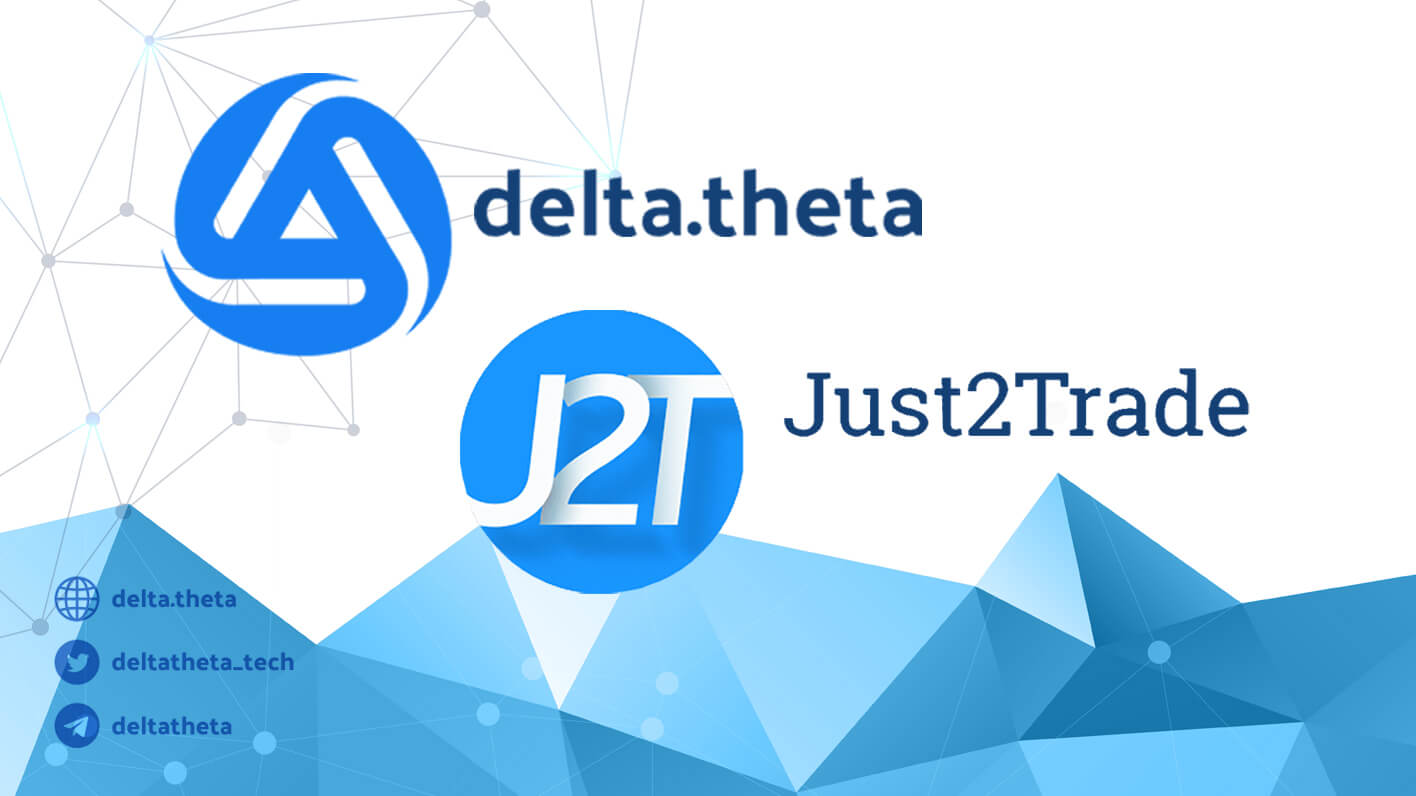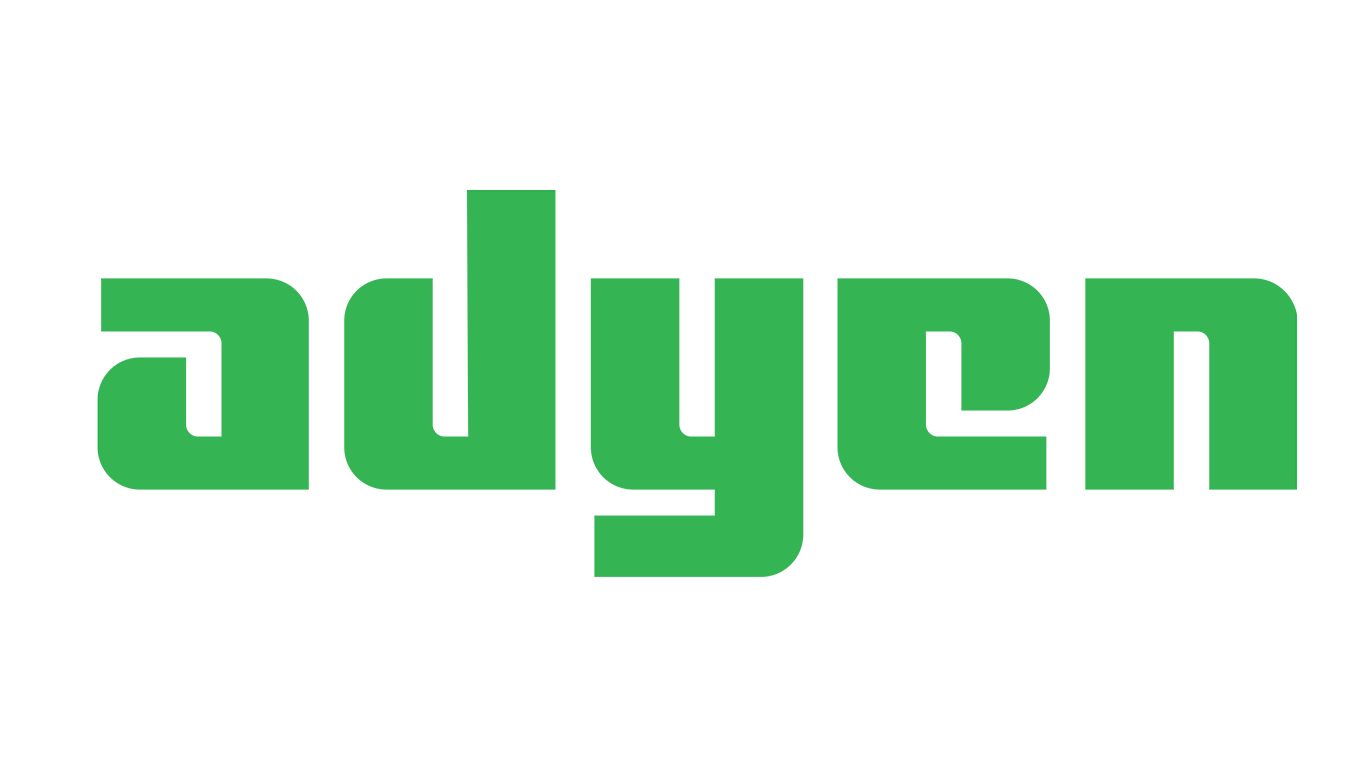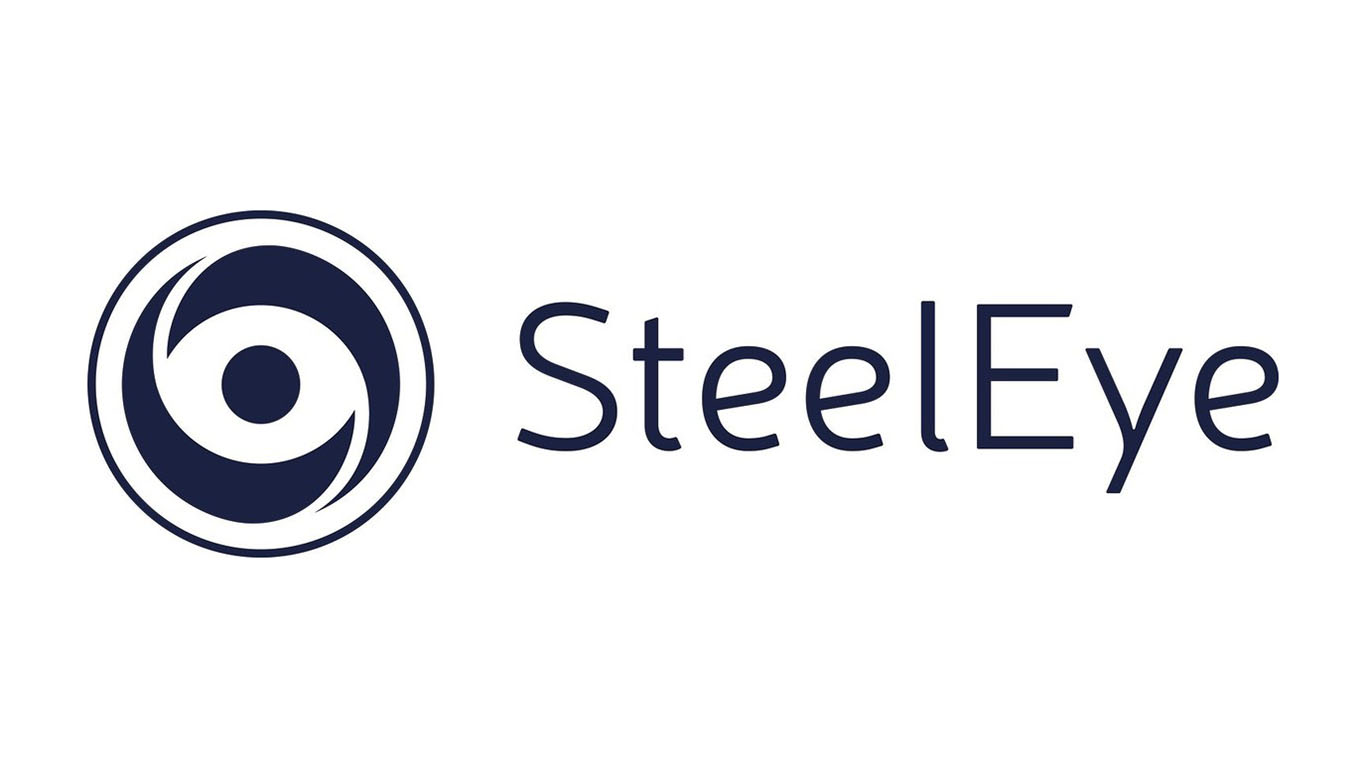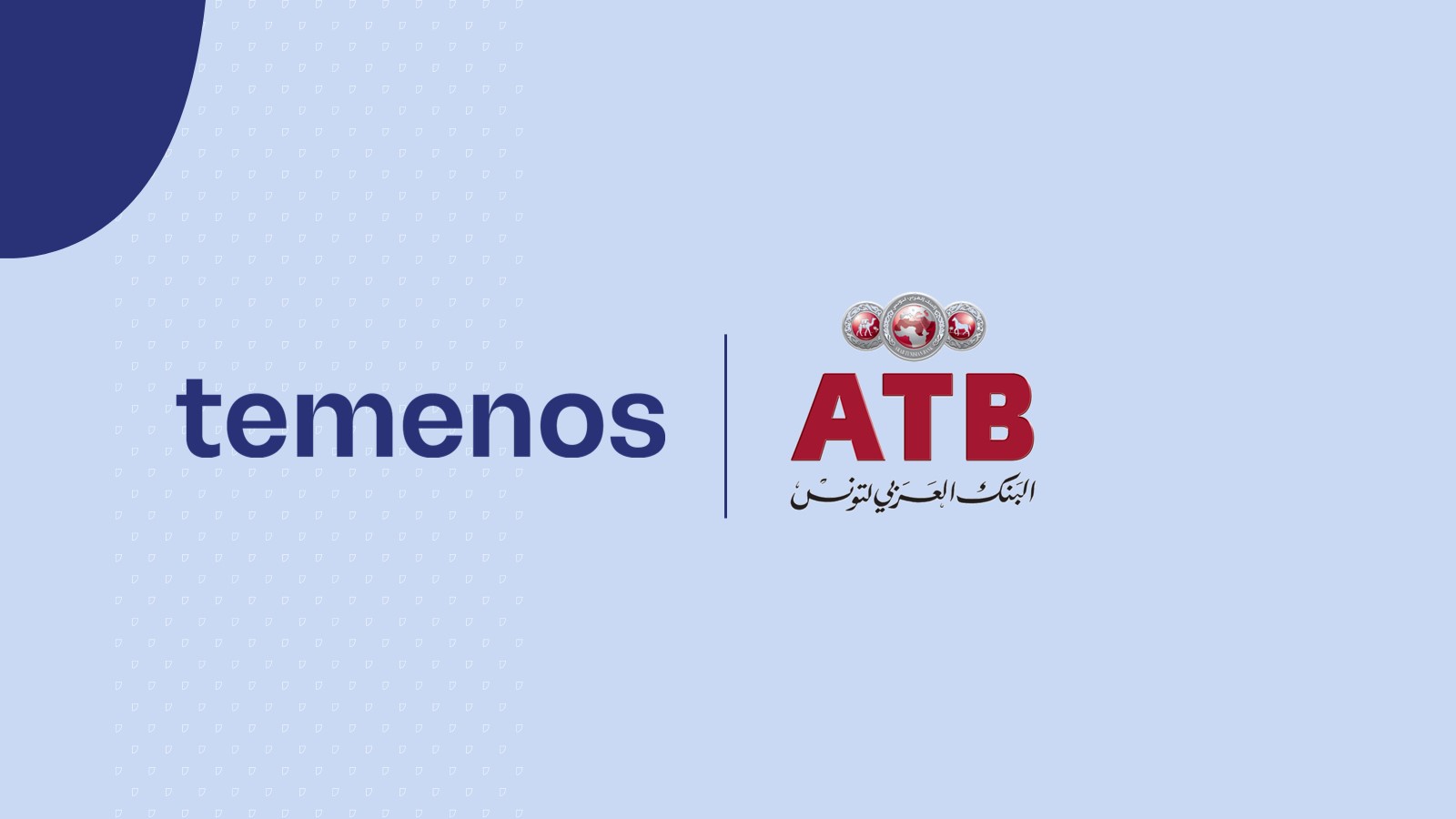Published
- 06:00 am

Fintech company Delta.Theta has launched the world's first decentralized and regulated P2P options exchange. Through partnering with regulated broker Just2trade, the platform is able to ensure KYC/AML processes, followed by gaining access to the P2P crypto trading platform provided by Delta.Theta. This unique combination opens the world of decentralized finance (DeFi) to major financial institutions, marking the beginning of DeFi integration into the corporate finance sphere.
In the newly-launched hybrid DEX platform, individuals will be able to buy and sell options from peers, while simultaneously providing the regulation and transparency of a licenced organization. Delta.Theta supports various networks, including Ethereum, Binance Smart Chain, Polygon and Aurora/NEAR, and makes it possible to trade currencies such as BTC, ETH, BNB, AAVE, MATIC, DOT, etc.
Through its platform, Delta.Theta opens P2P options trading to the regulated financial market – a first step in bringing DeFi into the traditional finance sector. The platform is a signifier of the times – that DeFi will increasingly be integrated into major financial institutions, such as banks, hedge funds, asset firms, and other regulated market participants.
Until now, traditional finance market participants have been averse to participating in DeFi due to the unregulated and volatile nature of the industry. However, by partnering with regulated brokers Just2Trade, they provide all of the levels of security that licenced financial institutions require to do business, including rigorous KYC and AML processes.
“Delta.Theta brings transparency and regulation to the crypto options trading industry. Right now, 90% of every crypto exchange made is processed through a company called Deribit, which is a non-regulated company in Panama. They process $8B in open interest transactions per day. While this may be acceptable to risk-averse early adopters, more serious market participants need a regulated environment to feel secure, and for crypto trading to enter the mainstream. This is what Delta.Theta brings to the table.” - Daniil Zatologin, co-founder and CEO of Delta.Theta
The platform also enables individuals to trade options without the need for a third party. Individuals are able to trade directly from their wallets, thus eliminating the risk inherent in first transferring funds to a third-party broker.
The combination of KYC and AML compliance, use of distributed ledger technology, broker-free platform, and unique technical features make Delta.Theta is ideally positioned to introduce decentralized finance to the regulated financial sector, starting with options exchange.
Related News
- 06:00 am

Adyen, the financial technology platform of choice for many of the world’s leading companies, today revealed that 22% of British consumers admit to leaving a restaurant or store without placing an order or making a purchase because they haven’t been able to pay how they want. More than half (54%) now expect to be able to pay for goods and services with digital wallets.
The food and beverage sector has been hit hard by the pandemic, staff shortages, and now the cost of living crisis. Adyen’s data suggests that businesses that invest in technology could improve the dining experience and streamline operations. Economic modelling by the Centre for Economic Business Research (Cebr) for Adyen found that accelerating digital transformation in restaurants, pubs, and cafes could add 9.1% to the sector’s turnover over the next five years.
Accelerating Digital transformation could also add 14.3 percentage points to the sector’s growth rate over the next five years, and bring forward the sector’s recovery to pre-pandemic levels in 2023.
Close to two-thirds (63%) of those surveyed say they will not patronise an organisation again if they have a bad experience. One of the biggest frustrations diners face is checking availability or making bookings. Almost half (48%) of consumers think restaurants and bars need to create better online links to their physical locations to make booking tables and ordering easier. While two-fifths (41%) said they wanted businesses to use technology to improve the guest experience, such as offering new ways to pay or using kiosks to order more quickly.
Tech plans must be prioritised
Adyen’s research polled of F&B retailers and found a disconnect with investment plans. Just 10% of businesses were planning on using technology to improve the dining experience over the course of this year. Only 22% of businesses said they accept digital wallets like Apple Pay and Google Pay as a form of payment and just 10% enable patrons to ‘self-checkout’ using kiosks or apps to pay at the table.
One in four (24%) F&B businesses said they enabled patrons to complete transactions easily across online and offline channels. Those businesses that do allow people to complete transactions in this way record impressive improvements to their bottom line. Half reported improved efficiencies, one-third (33%) recorded a higher average spend, and the same proportion recorded increased sales.
“From Michelin-starred restaurants to leading quick-service restaurants, the British pub or traditional ‘caff’, the food and beverage sector is a vital part of our country’s economy and culture. Businesses need to strike a delicate balance of modernising while retaining the elements of the experience that make these institutions so special,” said Colin Neil, Managing Director of Adyen UK. “Consumer expectations evolved quickly during the pandemic. Whether it’s using new ways to pay, or self-ordering at a table using apps, they have become more accustomed to technology to enhance the dining experience. Embracing digital transformation will help these businesses to keep up with expectations, gain more insights into consumer behaviour, and strengthen operations to brace for challenges such as staff shortages and the cost of living crisis.”
A case study: Leon
Since 2004, Leon has grown to include 70 restaurants across the UK and Europe. It’s rapidly expanding with 40 new restaurants in the UK, 10 in the Netherlands, and its first drive-through in West Yorkshire. The company is undertaking a digital transformation push, looking to streamline processes, improve the dining experience and better understand its guests. A big part of this digital transformation push was modernising the ordering process so that guests can order via an in-store kiosk or with their phone using the Leon app. This had the added benefit of providing rich customer insights to inform business decision-making.
Hugo Engels, Digital Executive at Leon said: “We'd have hundreds of thousands of guests coming through our restaurants and no idea who they were. We had no way of tracking whether they'd ever been to Leon before and, if they had, how many times. When we open a new store, are we constantly attracting new guests? Or are we building a new base of regular customers? More than ever, having good data, insights on our customer habits and demographics is really crucial to the business. So we needed partners that could help us connect the dots.”
“We’ve partnered with Vito Mojo and Adyen to improve our digital offer, which includes large-screen kiosks and a global app. Digital ordering has delivered significantly higher satisfaction, higher spend, and higher frequency of visits. Within a week, use of Adyen’s tokenisation, we were able to see whether guests had visited the restaurant before and, if so, how many times. On a business level, we can see what percentage of our guests are new, what percentage are returning, and what our order frequency is. Those are really crucial insights, especially in such a dynamically changing landscape like hospitality.”
Related News
- 01:00 am

emerchantpay, a global payment service provider and acquirer, has announced a strategic partnership with Novalnet AG, a German-based pioneer in all-in-one global payment services. The partnership will increase Novalnet’s acquiring coverage and maximise its merchant growth in Europe and internationally, building on its advanced payment proposition through emerchantpay’s in-house acquiring capabilities and online payment solutions.
This relationship will enhance operational efficiencies and boost payment performance across Novalnet’s portfolio. Novalnet already has a strong market proposition and supports global brands such as SIXT, Airbus, AXA, Deutsche Telekom, Vaillant and Frankfurt Airport. To build on its success further, Novalnet intends to use the partnership with emerchantpay to extend its merchant reach across a range of verticals, such as travel. Additionally, emerchantpay’s established 20-year presence in the UK will enhance Novalnet’s operational capacities in the local UK payment market.
emerchantpay’s partner-oriented approach offers dedicated support, performance monitoring and strategic advisory to support Novalnet in continuing to deliver the excellence and high level of service its customers know and expect.
Alexander Berrai, Country Manager Germany at emerchantpay, says: "We are excited to partner with Novalnet to provide our acquiring and risk management services. Through this collaboration, we’re working closely alongside Novalnet to ensure the highest level of service delivery in the European payment landscape."
Emmanuel Kirse, COO at Novalnet, said: "Our partnership with emerchantpay is a critical aspect of Novalnet’s growth strategy. This partnership provides us with acquiring capabilities to drive efficiencies within our payment infrastructure so we can continue to build leading edge solutions that match our global customers’ expectations."
Related News
- 03:00 am

The global broker OctaFX recently announced that it went swap-free in all countries where it operates. Now traders don't have to pay this type of fee if they leave their orders open overnight. But why did they pay it in the first place? Let's explore swap fees and why brokers charge them.
Forex trading usually implies using leverage to open larger positions which could generate more profit. Since using leverage is a way of borrowing money from a broker, traders have to pay interest when their orders are open longer than one day. Swap is a way to charge it.
Swap fees depend on the interest rate differential between the currencies in a pair, called the swap rate. Swaps are calculated based on whether the order is short or long and are usually charged at midnight. On Wednesday night, traders have to pay weekend swaps triple the usual size. They mostly use an intraday strategy to avoid paying swaps, which significantly narrows their investment experience.
A swap fee can sometimes—though quite rarely—be paid to a trader. How? The answer is in the swap rate, which sometimes can be positive, provided that the interest rate of one currency is negative.
The formula for calculating the fee is as follows:
Swap = (lots * long or short points * point size)
Let's calculate the swap for one of the most popular currency pairs, EURUSD. If a trader opens a long EURUSD order of 10,000 units and closes it the next day, the swap would be:
(0.1 * –5.616 * 1) = –0.56 USD
Charged every day, swap fees tend to accumulate with time and make trading less profitable. To enhance investment opportunities for its clients, OctaFX decided to remove swaps. These fees will no longer stop traders from using mid-term and long-term strategies in the financial market. They can now hold as many orders as they want for as long as they want and not be charged any swap fees.
Related News
- 06:00 am

Consumer intelligence Talkwalker releases its latest report, High Street vs Challenger Banks. It examines how the future of banking in the UK is seeing rapid and irreversible change, with challenger banks hot on the heels of high street banks.
High street banks lead the way with the lion's share of voice in the sector, with Barclays (34.4%) and HSBC (27.4%) being spoken about the most. This is in part due to huge peaks and clusters in conversation around popular culture and sports such as football, with Barclays sponsoring the Premier League.
While challenger banks such as Starling and Revolut are often mentioned in the same sentence, Revolut sets itself apart as the brand being spoken about and engaged with the most with the highest market share of voice (8.9%) amongst the challenger brands. Themes here are far more customer-centric, talking less about the world in broad terms and more about payments, platforms, and plans.
Overall, net sentiment for all of the banks is low. High street banks are spoken about more by consumers, but not favoured. Challenger banks come out on top with more positive sentiment than high street banks. Starling Bank has the most favourable net sentiment score (-4.4%), whilst high street bank NatWest fairs the worst (-36.6%).
The biggest issue for both high street and challenger banks and the number one factor driving the decision for people to switch banks is customer service. Sustainability and ethics are also seen as the big drivers, but for positive reasons.
HSBC can be seen advertising bank accounts for those people with no fixed address, and the climate-crisis-fighting initiative Tech Zero attracting the likes of Revolut, Starling Bank, and Monzo.
The topic analysis identifies fraud, crime, and support as key conversation drivers; challenger banks are surrounded by far more operational conversations about the app, access, and their account.
The report distils twelve months of data by analysing shared and earned media. as challenger banks experience significant growth and are increasing their share of the market.
Whilst the likes of Monzo, Starling, Revolut, and Monese are experiencing growth, it’s worth noting that these challenger banks combined, are the same size as NatWest - the bank with 12.5 million customers and over 1.8 billion log-ins to the app every year.
Jack Richards, Marketing Manager UK & Nordics at Talkwalker says:
“The world is changing. Consumers are more demanding, more urgent, and more unpredictable than ever, and brands are struggling to keep up. By analysing up-to-the-minute insights and pulling data from a range of sources, brands are able to obtain a holistic view of the marketplace and identify opportunities to help them close the consumer closeness gap. This in turn helps them challenge or maintain their brand position.
“The rise of challenger banks is an example of some of the most successful innovation, diversification, and differentiation any industry as established as banking has ever seen.”
Read the full Challenger Vs High Street bank report here.
Related News
- 03:00 am

Almost half of firms (44%) are planning to invest more in RegTech solutions in the next 12 months to cope with the growing pressure on the compliance function in this fast-moving and increasingly complicated regulatory and operational landscape. A further 41% expect to invest the same amount as the previous 12 months.
This investment is driving up the overall cost of compliance with almost all (90%) of financial services firms reporting increased compliance costs over the past five years. One in ten said costs have doubled.
This was discovered by compliance technology and data analytics firm SteelEye, in its first-ever Annual Compliance Health Check Report. SteelEye surveyed 170 senior financial services compliance and risk professionals in the UK and US on issues including the challenges they face, investment priorities and technology adoption in order to get a picture of the financial services compliance landscape today.
Regulatory change and data fragmentation continue to be a challenge
Nearly half (44%) of compliance professionals struggle with challenges related to data management, including overlaying communications and trades to manage market abuse risk; using Management Information (MI) efficiently to demonstrate risk; and consolidating and normalising of structured and unstructured data. A fifth (20%) of firms say keeping up with regulatory change is their biggest challenge in meeting regulatory obligations.
Opinions were split on dealing with regulators. While 42% said regulators are now more challenging to deal with, 48% said they now find it easier to deal with the regulator. This could in part be due to technology making compliance processes more streamlined and straightforward. Small firms find it more challenging at 58%.
When asked if they think firms are well equipped to handle more stringent regulatory rules over the next five years, encouragingly, most respondents (75%) believe financial services firms are in a good position.
Compliance teams burdened with fragmented and manual processes
Administrative and repetitive tasks dominate compliance professionals’ work, pointing to the need for greater automation and digitalisation within the sector. In fact, half (50%) of respondents said at least half of compliance staff within their firm do administrative or repetitive tasks.
The survey demonstrated a clear trend towards centralised compliance management, with most (56%) respondents working within one team that oversees compliance for all branches and regions in which the company operates. Meanwhile, just 12% said they deploy a decentralised model where compliance is managed directly within individual jurisdictions. This is understandably more common for large organisations at 18%. In contrast, 88% of small firms’ compliance management is fully centralised. Centralisation of the compliance function can enable businesses to be more strategic and allow for richer learning across multiple jurisdictions. However, this hinges on a strong data foundation for the business as a whole.
Regulation, surveillance and data management top of the priority list
When asked about their top two investment priorities for the year ahead, regulatory reporting ranked first overall. However, when breaking this down by region it becomes clear that regulatory reporting is a leading investment area in the UK, whereas communication surveillance is the top priority in the US, particularly among banks. This is unsurprising given the fact that US regulators are clamping down hard on communications rules. Last year’s headline-grabbing $200 million fine for J.P. Morgan by the Securities and Exchange Commission (SEC) demonstrated the importance of adequate monitoring of employee communications.
Firms are reaping the rewards of machine learning in compliance
31% of firms said they have fully implemented a degree of AI or machine learning in their compliance processes. A further quarter (25%) are investing in the technology but are still in the implementation stage. The subsections of larger firms and US-based respondents are even further along in that journey, with 75% and 95% respectively having partly or fully implemented AI and machine learning in compliance.
Those that have implemented AI are reaping the benefits. 100% of those who have fully implemented AI for compliance claim they have seen a marked improvement in the quality of their Management Information.
However, many firms are yet to take advantage of the potential of AI. Almost half (44%) said they have not started looking at AI’s possibilities for compliance. One cause of slow adoption might be the need for a strong data foundation which is necessary for successful AI deployments.
Matt Smith, CEO of SteelEye, said: “Our first Compliance Health Check Report demonstrates the breadth and complexity of challenges facing today’s compliance professionals. Keeping abreast with regulatory change, improving data quality and managing risks and controls within the business are just some of the headaches facing compliance teams.”
“The good news is that firms are clearly beginning to recognise the role technology can play in solving complex compliance challenges. In fact, 85% expect to invest the same amount or more in RegTech in the next 12 months.”
“Technology and data are key to establishing future-proofed compliance processes and procedures. It is great to see that a large proportion of firms view the enhancement of data quality as a top priority and that most firms are actively investing in technology. By prioritising how to bring together disparate datasets and make better use of data firms can more easily address regulatory change and other compliance challenges that will emerge down the line.”
“We are hopeful that these investments will enable compliance teams to improve the efficiency of their compliance programs - thereby reducing their reliance on administrative and repetitive tasks. Doing so can enable the compliance function to pivot from reactive investigations and firefighting to a more proactive model for compliance management and risk detection.”
Related News
- 02:00 am

ION Treasury, a global provider of treasury and risk management solutions for corporations, financial institutions, and central banks, announces that AVL List GmbH (AVL) has selected the ION ITS solution for its new treasury management system (TMS).
AVL is the world’s largest independent company for development, simulation, and testing in the automotive industry and other sectors. Drawing on its pioneering spirit, the company provides concepts, solutions, and methodologies to shape future mobility trends. This passion for innovation has made ION Treasury’s ITS a natural choice to transform AVL’s treasury operations.
ION’s ITS solution is an integrated treasury and risk management system that is suitable for companies of all sizes, from DAX-listed companies to SMEs. With a strong footprint in Central Europe, ITS offers extensive capabilities across cash, payments, risk, and accounting.
AVL will use the ION Treasury solution to automate cash, liquidity, payments, and risk processes, integrating the solution with its enterprise resource planning (ERP) system. As the central hub for financial data and reporting, ITS will enable AVL to become more efficient, respond quickly to increasing information needs, and improve visibility to internal and external stakeholders.
“We selected ION to automate and manage our treasury operations and financial reporting. With ITS originating and being well supported, we are confident that it best fits our treasury’s needs and will grow with us in the future,” said Dr. Alexander Schwaiger, Head of Group Treasury at AVL. “We look forward to a long-term partnership with ION Treasury.”
ION Corporates CEO, Richard Grossi, said “AVL is the latest pioneering international business to adopt ITS, both for the advanced capabilities it offers and ION’s continued investment in innovating treasury management. ION’s partnership with AVL will help them to automate workflows, eliminate errors, and increase efficiency and control. ION is delighted to welcome AVL to ION Treasury’s market-leading community. We look forward to supporting AVL’s digital transformation efforts as they expand their treasury operations.”
Related News
- 08:00 am

Temenos today announces that Arab Tunisian Bank, a leading bank in Tunisia and part of the Arab Bank Group, one of the largest financial institutions in the Middle East, has gone live on Temenos open platform for composable banking. The initial phase of the transformation of its core banking systems for retail and corporate business lines with Temenos frees the bank from legacy constraints to accelerate product delivery and digital growth.
ATB is a mid-sized universal bank serving retail, SME and corporate customers with a staff of 1300 and 134 branches across the country. On Temenos open platform, it aims to differentiate itself in the market as a customer-centric bank through technology and innovation. Leveraging the platform's core and digital banking capabilities to power new growth opportunities, drive efficiencies at scale, and deliver seamless customer experiences.
The project's first phase was completed by the implementation partner, Information Technology Solutions and Services (ITSS). It included Temenos Banking Capabilities for Accounts, Lending, Deposits and Financial Crime Mitigation and migrating retail and corporate accounts to the Temenos platform.
Ultimately, the front-to-back banking capabilities of Temenos open platform will underpin the bank's entire operations. The second phase of the implementation includes Temenos Banking Capabilities and pre-composed Banking Services for Digital Banking, Payments and Enterprise Risk Management.
Temenos' next-generation platform is built on microservices and APIs to allow for continuous innovation and delivery for ATB to quickly and sustainably scale its business. Cloud-native and with an ecosystem built around it, the Temenos platform also enables ATB to open up to fintechs and the possibilities of new business models in the future.
Ahmed Rjiba, CEO, Arab Tunisian Bank, commented: "We are delighted to complete the successful migration of our retail and corporate banking customer accounts to the Temenos Core Banking Platform. This go-live is a major step forward in the bank's strategic roadmap and to further develop the digital transformation. A modern, agile banking platform is vital for developing distinctive products and services and adapting to changing customer expectations and market evolution. Temenos gives us that agility we need and future-proofs our technology infrastructure to grow sustainably and tap new growth opportunities."
William Moroney, Managing Director, Middle East & Africa, Temenos, said: "Congratulations to the ATB team and our implementation partner ITSS on this successful go-live. As the market leader with deep local experience working with ten banks in Tunisia, we are proud to support ATB on its transition from legacy infrastructure. ATB can now benefit from the unmatched breadth of the Temenos platform's composable banking capabilities to accelerate its strategy of transformation and diversification."
Related News

Andrew Watson
Chief Technology Officer at MHR
Businesses today have more access to data than ever before. see more
- 06:00 am

90% of some of the UK’s largest organisations are struggling with a skills shortage and are unable to find talent with the appropriate skills to remain competitive, new research from HR, payroll and finance experts MHR International reveals. While the larger organisations are struggling more severely, the average UK business is suffering the same fate – four in five (79%) of businesses surveyed say that it is their biggest challenge.
MHR surveyed over 500 senior managers in large organisations across the UK to find out their views on business resilience and the future of their organisations. The research revealed that as well as the size of the business having an impact on access to skills, the age of the business did too – 86% of businesses that have been operating for over 20 years said it was their biggest challenge, compared to just over two thirds (68%) of businesses who are less than five years old.
As well as getting the right skills on board to remain competitive, businesses in the UK are also unsurprisingly still struggling with having sufficient people resources overall. Over three quarters (77%) of managers surveyed by MHR said that having enough talent was a challenge – this rose to 88% for businesses operating for over 20 years. Again, the youngest businesses surveyed were experiencing this phenomenon less – while still a majority, less than two thirds (63%) of managers from these businesses said having sufficient talent resources was a problem. Given the UK’s entrepreneurial economy, which saw over 200,000 new businesses incorporated in the first quarter of 2022 alone, this might point to employees rethinking their careers and joining smaller workforces at start-ups or younger organisations.
Mark Jenkins, CFO at MHR said: “It’s no real surprise that in today’s challenging landscape, businesses are struggling to access to the skills they need to keep an edge on the competition. But investing in the right skills, tools and talent is a core part of a business’ ability to withstand further market disruptions, so it’s a hurdle that must be overcome.”
In response to this skills gap, half (50%) of UK businesses have focused on employee engagement in the last five years to increase their resilience to market shocks. And while only 4% of the managers surveyed said it would be a challenge to financially cover meaningful operational changes within their organisation, 1 in 4 (25%) are missing key resources such as capital, people and assets to stay ahead of the competition. A slightly higher number (28%) stated that a lack of skills was holding them back from making investments in the tools they need to increase business resilience in the first place.
Jenkins added: “84% of the respondents we surveyed said that resilience was a much higher priority now than it was five years ago. To build true business resilience, organisations must not just focus on employee engagement and training, but also arm themselves with as much data as possible around recruitment, retention and skills required, to establish where the gaps are, and make any operational changes needed to fill them.”









